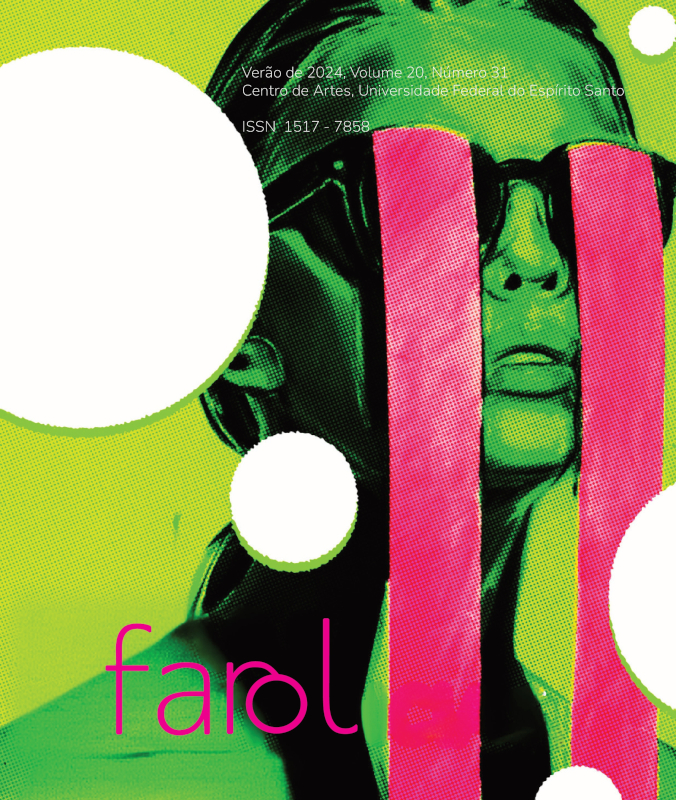A (re)existência tapuia
somos goitacazes, botocudos, aymorés e puris
DOI:
https://doi.org/10.47456/rf.v20i31.45541Palavras-chave:
povos originários, arte contemporânea, decolonizaçãoResumo
A decolonização é pauta. Todo movimento para seguirmos na (re)escrita de nossa história é urgente e necessário. O corpo e o espírito, cansados de tantos anos colonialistas, se naturalizaram e nem sempre sentem os efeitos desse crime bárbaro. Este artigo versa sobre uma micro história de nossos povos originários, ressignificando seu modo de vida e seus costumes. Camadas sucessivas de agressões nos levam a perceber como até hoje esse movimento se repete, ao dialogarmos com a produção contemporânea da artista visual [nome desidentificado].
Referências
ALVARÁ que proíbe as fábricas e manufaturas no Brasil. Arquivo Nacional, 11 mar. 2021. Disponível em: http://historiacolonial.arquivonacional.gov.br/index.php?option=com_content&view=article&id=3674:alvara-que-proibe-as-fabricas-e-manufaturas-no-bra&catid=145&Itemid=286. Acesso em: 19 maio 2021.
CICCARONE, Celeste. Um povo que caminha: notas sobre movimentações territoriais guarani em tempos históricos e neocoloniais. Dimensões, v. 26, p. 136-151, 2011.
MOSÉ, Viviane. A resistência tapuia na capitania do Espírito Santo. Vitória: Instituto Histórico e Geográfico do Espírito Santo, 2009.
PIERONI, Geraldo. Vadios e ciganos, heréticos e bruxas: os degredados no Brasil-colônia. 3. ed. Rio de Janeiro: Bertrand Brasil, 2000.
STADEN, Hans. Duas viagens ao Brasil: primeiros registros sobre o Brasil. Tradução de Angel Bojadsen. Porto Alegre: L&PM, 2019. (Coleção L&PM Pocket, v. 674.)
TEAO, Kalna Mareto. Formação de professores indígenas tupinikim e guarani mbya do Espírito Santo. Cadernos de Educação Escolar Indígena – Proesi, Barra do Bugres, v. 6, n. 1, p. 101-122, 2008. (Organizadores: Elias Januário e Fernando Selleri Silva.)
Downloads
Publicado
Edição
Seção
Licença
Copyright (c) 2024 Rosana Paste

Este trabalho está licenciado sob uma licença Creative Commons Attribution-NonCommercial-ShareAlike 4.0 International License.
Os autores de trabalhos submetidos à Revista Farol autorizam sua publicação em meio físico e eletrônico, unicamente para fins acadêmicos, podendo ser reproduzidos desde que citada a fonte. Os mesmos, atestam sua orignalidade, autoria e ineditismo.





